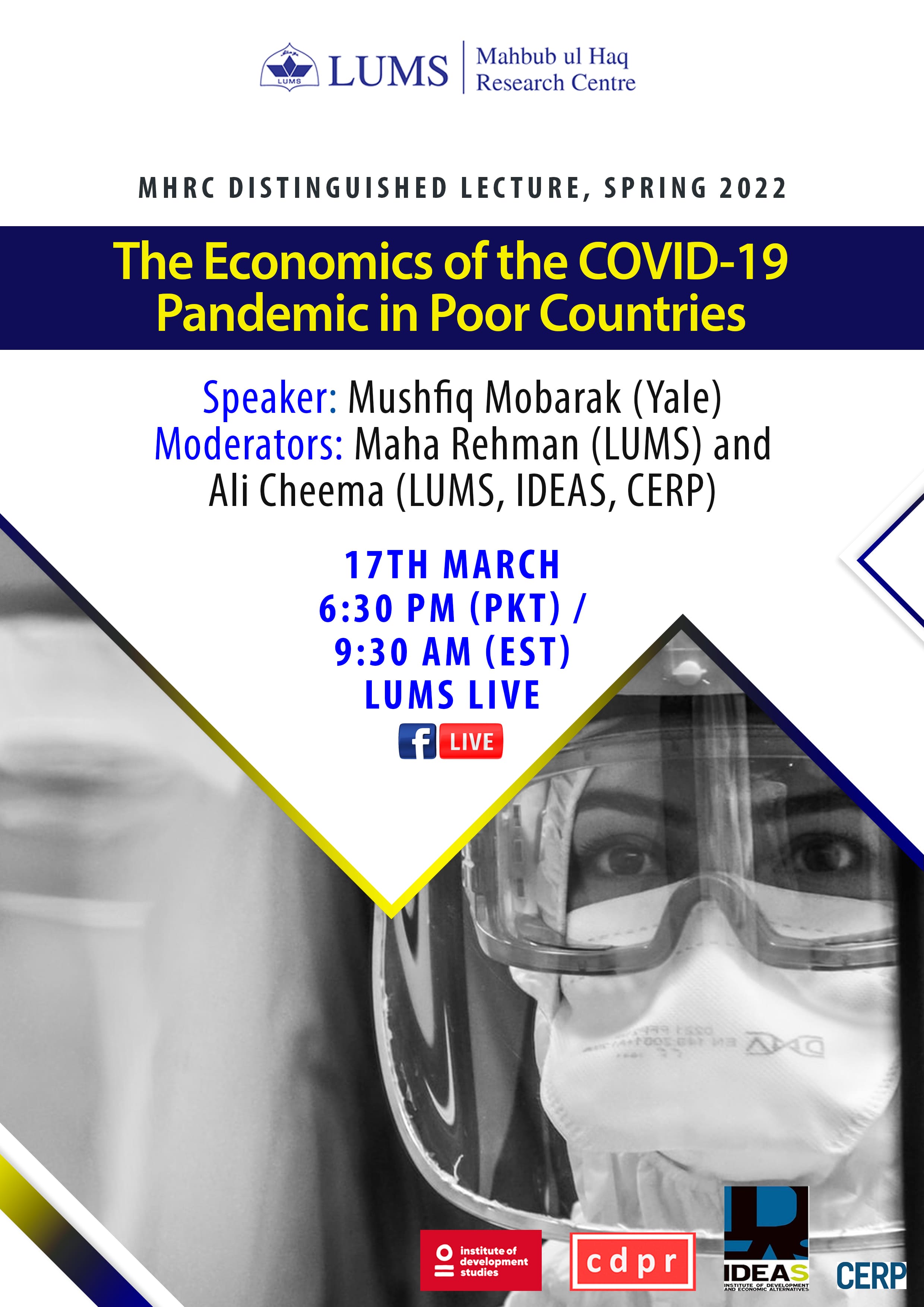The Economics of the COVID-19 Pandemic in Poor Countries
The COVID-19 pandemic has upended health and living standards around the world. This talk provides an overview of these effects, with a particular focus on low- and middle-income countries (LMICs). Economists have explained how the pandemic is likely to have different consequences for LMICs, and demanded distinct policy responses, compared to rich countries. The pandemic’s many adverse economic and noneconomic effects in terms of living standards, education, health, and gender equality appear to be unprecedented in scope and scale. The talk also reviews research on successful and failed policy responses, including the failure to ensure widespread vaccine coverage in many LMICs. Vaccines are changing the course of the COVID-19 pandemic, but in grossly uneven ways. The poorest countries continue to face considerable obstacles in both receiving and distributing doses. To limit virus transmission, its devastating impacts, and opportunities for further mutations, this must change. Until it does, nonpharmaceutical interventions such as masking must remain a priority.
Ahmed Mushfiq Mobarak is a Professor of Economics at Yale University and is also the founder and faculty director of the Yale Research Initiative on Innovation and Scale (Y-RISE). He conducts field experiments exploring ways to induce people in developing countries to adopt technologies or behaviors that are likely to be welfare improving. Mobarak has several ongoing research projects in Bangladesh, Pakistan, Nepal and Sierra Leone. He holds a Ph.D. in Economics from the University of Maryland at College Park.
Maha Rehman, a researcher, has extensive experience in designing and executing evidence-based programs, products and policies to improve service delivery and impact. Over the past two years, she actively engaged in a multi-pronged analytical response to COVID in Pakistan tracking the disease incidence and economic indicators, predicting disease outbreak using SEIR Modelling, assessing impact on income, unemployment and remittances and evaluating the efficacy of various policies. Prior to that she set up the Analytics Wing at CERP. She has also led research experiments at CERP and at the World Bank. She is also a Pakistan Acumen Fellow, 2016. She frequently writes for DAWN and other daily publications. Currently, she is the Director Policy at MHRC at LUMS and a faculty member in the LUMS Economics Department. She has her graduate degree in Economics from Duke University and has an undergraduate degree in Economics and Mathematics from LUMS. She has designed curriculum and taught policymakers, bureaucrats and data practitioners at various programs in the USA and Pakistan.
Ali Cheema serves as the Director at MHRC and is an Associate Professor of Economics at LUMS. He is a Senior Research Fellow at IDEAS Pakistan, co-founder of CERP, and a co-lead academic of the IGC’s Pakistan programme. His areas of research include development, gender, political economy and local governance. His work has been accepted in leading journals, such as the Journal of Political Economy and Science. He holds a PhD in Economics from Cambridge, an MPhil in Economics and Politics from Cambridge, a BA hons in Philosophy, Politics and Economics (PPE) from Oxford where he was a Rhodes Scholar.

Mahbub ul Haq Research Centre at LUMS
Postal Address
LUMS
Sector U, DHA
Lahore Cantt, 54792, Pakistan
Office Hours
Mon. to Fri., 8:30 a.m. to 5:00 p.m.

